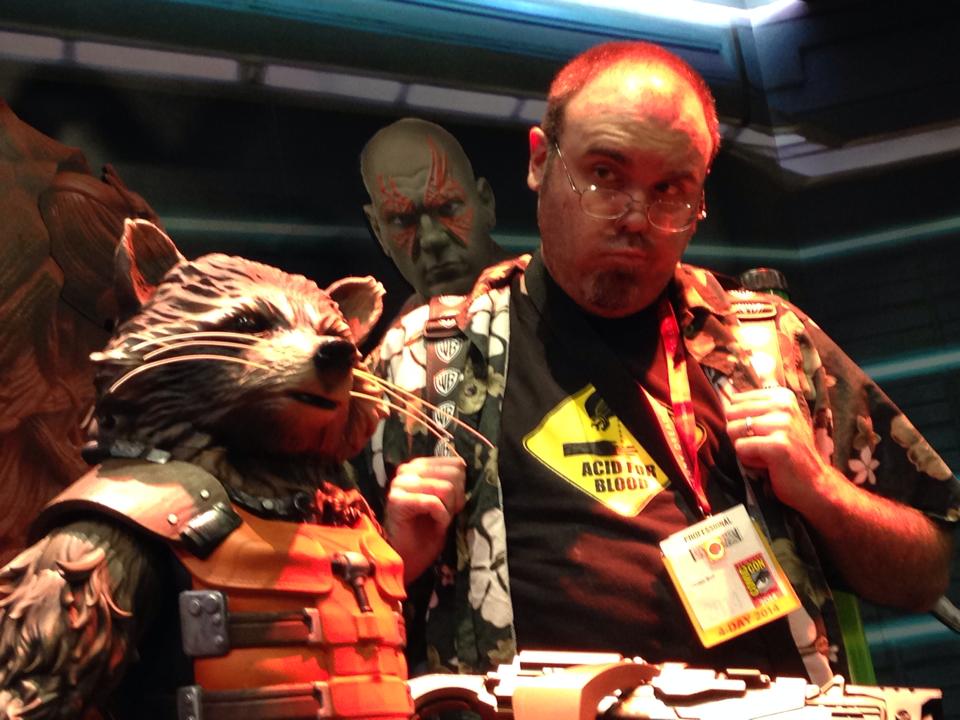Here we go again. Dammit San Diego Comic Con, you’re awesome, but you sure are a hotbed of plague.
Actually it’s possible San Diego isn’t to blame this time around, since both my mother and my wife were both wrestling with what seems to be my same symptoms before we ever packed our car for the convention. I was chowing vitamins in hopes of avoiding it, but then last Monday happened with my aunt and, well, that kind of stress and potential grief will do a number on your body. I’m guessing the virus took full advantage of that chink in the defenses.
As an update, my aunt is back at her home and stabilized for the time being. She still wasn’t able to go to the convention but we took lots of pictures and videos to share with her and the CCI staff let Dawn and I pick up the t-shirts she’d pre-ordered without any fuss. From a purely logistical standpoint this was probably one of our best trips, with little to no stress involved in our arrival or departure; a far sight better than some previous years.
On the other hand, Southern California weather decided to take an uncharacteristically humid turn, feeling rather… what’s the word… swampy? We natives here can deal with heat by itself, but once you start adding water we can become rather soggy and miserable, as evidenced by last Friday night where pretty much everyone I knew called off their party plans in favor of just collapsing in the A/C of their hotel rooms. Meanwhile some dude from Louisiana was probably out there scooping up the swag and downing all the complimentary booze.
It was still quite fun, just had to be taken in small measures; though now that I think about it, I suppose that’s fair to say of any trip to SDCC. I just remember on Friday saying hi to some of our exhibitor friends and they had even more than the usual shell-shocked stare of Day 3, possibly because even the Exhibit Hall was feeling sticky that day; not quite “the A/C is out” but it didn’t quite seem to be compensating for the press of bodies.
I wonder how many infections I dished out? Hopefully not many, this is a miserable bug. When I think things like “I want to watch that movie but I’m not sure I have the energy to stay awake on the couch for two hours”, that’s pretty miserable. I was very, very glad we’d already decided to take the week off in terms of a story post.
Speaking of which, probably a good point for me to wrap this up and go have another lie down with some orange juice. Next week I shall hopefully be back at this spot with 100% less self-pity and 100% more something interesting to say. At least 50%. Yeah, that sounds good. I have to feel better at least in time for Guardians of the Galaxy!








